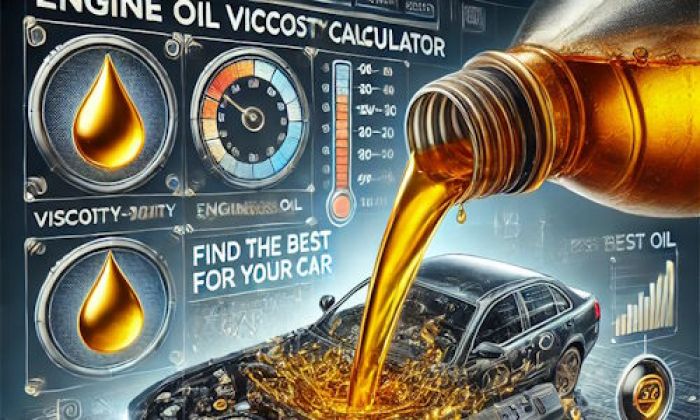If your Juke throws the P2263 code, the problem is with the turbocharger. It may have improper boost pressure or one of the sensors is failing. Also, you should check the air intake and exhaust - everything that can affect boost pressure along with the turbocharger itself. Inspecting the engine and locating the problem that triggers this code may be challenging.
P2263 code highlights
- Level of urgency:Medium
- Possible culprits:Turbocharger, turbo piping
- Price for repair:$0 - $650
- If neglected:Loss of power, inefficient work
- DIY repairs:Impossible
- Can you drive?Carefully

What are the symptoms that came with the P2263 code?
So, the P2263 fault code tells you about the boost pressure problems in the turbocharger. When it comes to the Juke engines, this is quite a common problem for the MR16DDT engine or the 1.6L Turbo. This engine is pretty rare in the US and is quite problematic. One of the common issues is the problem with the turbocharger and its sensors that leads to the P2263 and other common codes meaning that the pressure of air in the system is not OK.
While in some cases, the P2263 code may pop up in your Juke just with the check engine light and without any serious symptoms, in some other cases, you may feel additional symptoms.
Here are some of them:
- the engine turns off the turbocharger after reaching 3000-3500 RPM;
- the black or grey smoke is coming out of the tailpipe pretty extensively;
- the power and acceleration are affected, you can't accelerate as usual;
- you see dreadful gas mileage readings on the trip computer display;
- the engine works harshly when the code is active and the check engine light is illuminating;
- whistling sound when accelerating and pressing the gas pedal hard;
- the engine may stall or be hard to start if the problem is ignored.
Again - your Juke may not feel these symptoms. It may be going just as usual and you only observe the check engine light on the dash. Also, the light may be accompanied by several common error messages connected with the emission system or engine.
Whenever you encounter this problem, you should know that it's pretty common for the 1.6L turbo engines, and, in most cases, it doesn't mean anything very serious. But still, if you ignore the issue, it may grow into very expensive-to-solve problems.
What are the issues that cause the P2263 code in the Juke?
So, now you know a little about the code itself and you may wonder what exactly triggered this annoying error code in your car. There are several possible problems that may have been the culprits of this situation.
Here they are:
1. Defective boost sensor mount in early models
2010-2011 Juke was recalled for defective weld of the boost pressure sensor mount. The mount may have just fallen off and this would cause a serious air leak in the turbocharger system and one of the possible boost pressure codes including the P2263.
If your car is on the list of recalled vehicles, even after so many years, Nissan should deal with the problem for free. You should go to the dealership and ask them if that recall can be applied. The recall number is 11V583000.
You can check if your Nissan is eligible for this recall by entering the VIN on this page - Nissan's official website.
2. Boost pressure sensor is broken
Another pretty common thing is that the boost pressure sensor is giving wrong readings to the ECU. In this case, the pressure sensor should be replaced with a new one. I would only install OEM sensors because aftermarket ones are unreliable and can only work for a month or two before they fail.
Boost pressures usually live quite long but they may fail when there are problems with the airflow in the system. Maybe, something else is also wrong if you keep replacing the boost sensors one after another and the turbocharger still doesn't work to the full of its potential.
3. Some pipe or hose is disconnected
The turbocharger should keep the flow of the air properly sealed. If there is a loss of vacuum at some point, the system will fail. The turbocharger boosts certain pressure in the air intake while the pressure sensor sends different readings to the ECU due to pressure loss somewhere in the system. This may trigger the P2263 code, especially at high RPM.
It sounds quite easy - checking for disconnected or broken pipes in the turbocharger system. But no, the leak is hard to find and you should go to professionals who will pressurize the system and find the way to locate the possible leak.
4. Issues with air intake
Another problem that causes wrong turbo pressure is issues with air intake. Maybe your air filter is completely clogged with dust and just doesn't let the needed amount of airflow to the turbocharger. Or maybe there is some kind of blockage in the air intake that you should remove.
If the turbo doesn't get access to the airflow, it will not create the needed pressure in the engine. This may trigger the code and eventually even kill the turbo.
5. Problems with exhaust
When the air is boosted into the engine and the air-fuel mixture is burnt, the exhaust products should be sent to the exhaust system and then to the atmosphere through the tailpipe. But what if something blocks this airflow in the exhaust system?
You should check the EGR system which doesn't fail that often in the 1.6L Turbo engine in the Juke. But the more possible culprit is the catalytic converter. If your Nissan has more than 150,000 miles on it, the converter may already be clogged and dead. This blocks the gases from coming out and creates back pressure in the system. Usually, this affects the turbocharger in the end and triggers the P2263 code.
6. The turbocharger is faulty
I wanted to make it the last part of the "culprits" section but actually, this is one of the common problems with the 1.6L Turbo engines in the Juke. The oil feed pipe is pretty thin in the turbocharger and it makes it quite hard for thick oil to go through and lubricate the turbo. The problem may be catalyzed when you use a thicker oil or forget to change it when needed.
If the turbocharger is not lubricated properly, it will fail very soon and will not create the proper pressure. Of course, this will trigger the P2263 code and you will need to replace or repair the turbocharger (repairing means replacing all the inner parts, so anyway it will be expensive).
Can you drive with the P2263 code active?
If the vehicle doesn't change its behavior and can go well after you turn it off and then on again, you can drive. But I don't mean that you can ignore the problem and drive hundreds of miles till you get time/money to go to the dealership. No, this is not a problem you can ignore, for sure.
Also, if the code is accompanied by serious symptoms such as the car stalling spontaneously or serious power loss, driving the Juke is not recommended. It may be cheaper for you to call a tow truck because the turbo may be completely destroyed after just several miles.
How much will it cost to repair this problem?
The cost of repair depends highly on the culprit of the code. If this is a boost pressure sensor, it will cost you about $100 to buy the sensor and another $100 to have it installed in the dealership. You may even install it on your own if you know how to do it.
If the issue is with the clogged air filter, you may change it on your own and this will obviously save you some money.
But the failed turbocharger is going to cost you a fortune. Dealers in the USA will charge you about $2,300 for the replacement of the turbocharger. The repair in a good independent shop may cost you between $1,000 and $1,500.
Final thoughts
I should tell you that the P2263 problems in your Nissan Juke should be taken seriously. This is one of the most common issues with the 1.6L Turbo engine's turbocharger. If you don't solve the problem on time, it may grow into fatal issues with the turbo and this may cost you thousands of dollars to repair.
Unfortunately, there are not so many things you can do on your own. Locating and solving such problems are the tasks for professionals.
If you have any questions, ask them in the comments below!
About the authors
The CarAraC research team is composed of seasoned auto mechanics and automotive industry professionals, including individuals with advanced degrees and certifications in their field. Our team members boast prestigious credentials, reflecting their extensive knowledge and skills. These qualifications include: IMI: Institute of the Motor Industry, ASE-Certified Master Automobile Technicians; Coventry University, Graduate of MA in Automotive Journalism; Politecnico di Torino, Italy, MS Automotive Engineering; Ss. Cyril and Methodius University in Skopje, Mechanical University in Skopje; TOC Automotive College; DHA Suffa University, Department of Mechanical Engineering






Add comment